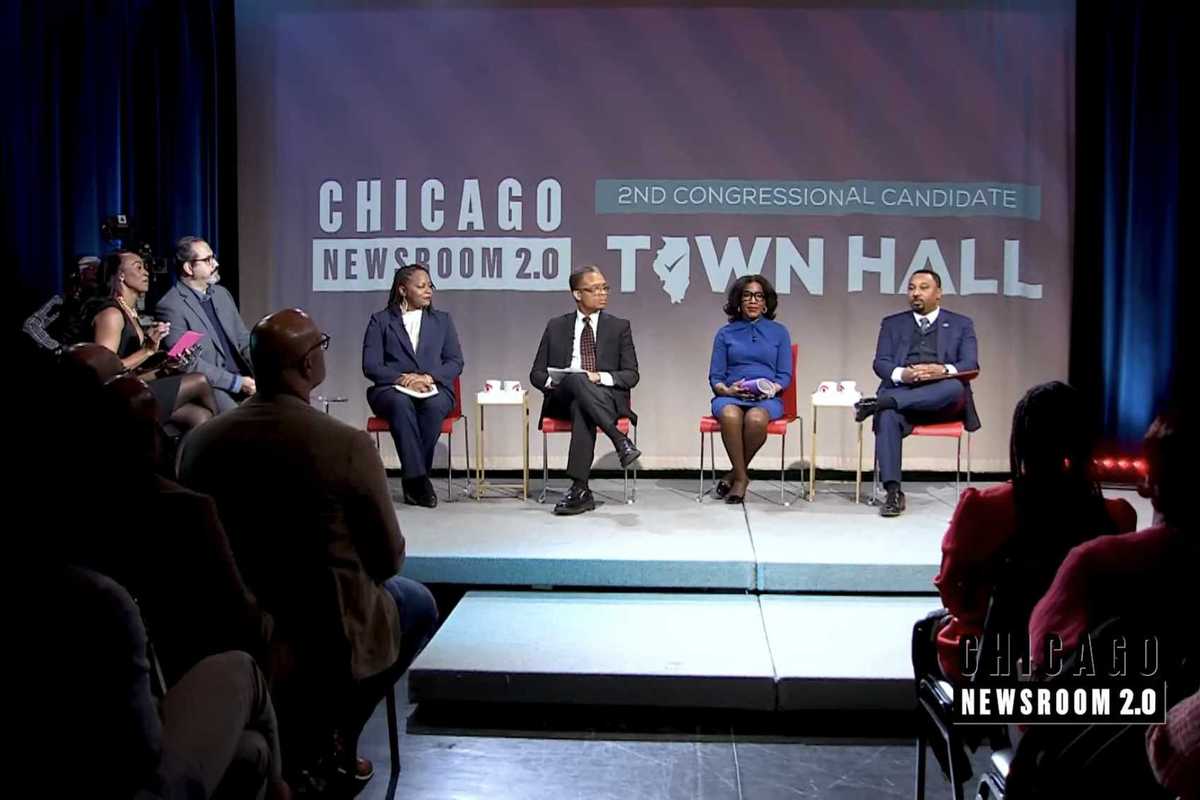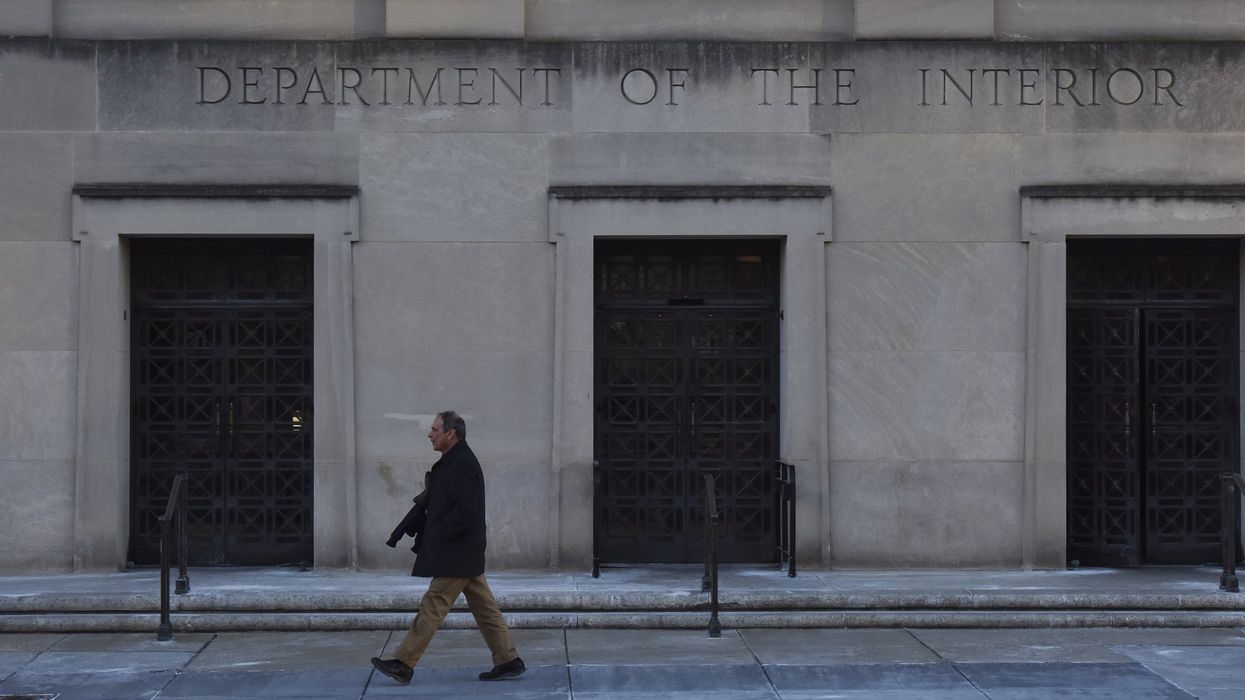Becvar is co-publisher of The Fulcrum and executive director of the Bridge Alliance Education Fund, the parent organization of The Fulcrum.
As the political landscape heats up, a critical document known as Project 2025 has surfaced, outlining sweeping proposals for the Department of the Interior, among many other government departments and agencies. Spearheaded by former Trump administration officials and conservative leaders, this comprehensive plan calls for a radical restructuring of the department’s mission and operations.
The document's vision constitutes a significant departure from current policies, emphasizing energy dominance and deregulation, raising questions about the future of public lands and environmental protections.
Former President Donald Trump’s remarks about being a “ dictator on the first day only ” of a potential second term have sparked considerable debate. Despite his claims of unfamiliarity with Project 2025 and the Heritage Foundation’s announcement that it was ending that work, the goals articulated in the document align closely with his stated priorities. Trump’s promise to “close the border and drill, drill, drill” mirrors Project 2025’s objectives, suggesting a coordinated effort to reshape the DOI from day one of a new conservative administration.
The chapter on the Department of the Interior, authored primarily by William Perry Pendley, former acting director of the Bureau of Land Management, sets a combative tone. Pendley’s tenure at BLM was marked by aggressive moves to reduce protections for public lands and wildlife, leading to a demoralized agency described by insiders as a “ghost ship.” His role in Project 2025 signals a continuation of these policies, aiming to dismantle what he and his colleagues view as an overreaching administrative state.
Departmental overhaul
The Department of the Interior encompasses nine bureaus, each with distinct missions ranging from managing national parks to overseeing energy resources. Project 2025 proposes several administrative and structural changes. One of the first major proposals is to relocate BLM headquarters back to the American West from Washington, D.C. This move, combined with the implementation of Trump's Schedule F proposal aimed at increasing accountability in hiring and firing federal employees, suggests a significant shift in the DOI's operational dynamics.
Furthermore, placing all BLM law enforcement officers in an exclusively law enforcement chain of command signals a more rigid approach to land management enforcement.
Energy production and resource extraction
The energy section of the chapter was written by Kathleen Sgamma of the Western Energy Alliance, an oil and gas industry group; Dan Kish of the Institute for Energy Research, a think tank long skeptical of human-caused climate change; and Katie Tubb of the Heritage Foundation. The authors set the tone of the section, titled “Restoring American Energy Dominance,” with this passage:
“Given the dire adverse national impact of Biden’s war on fossil fuels, no other initiative is as important for the DOI under a conservative President than the restoration of the department’s historic role managing the nation’s vast storehouse of hydrocarbons, much of which is yet to be discovered.”
The energy section calls for rolling back Biden-era executive orders and reinstating Trump-era policies that favor oil and gas development. Specific proposals include expanding onshore and offshore oil and gas lease sales, restarting the federal coal leasing program, and reversing protections for areas like the White River National Forest in Colorado.
This aggressive push toward fossil fuel development raises environmental and economic concerns. Critics argue that such policies could undermine efforts to combat climate change and protect public lands from overexploitation.
Regulatory and policy reforms
Project 2025 also targets regulatory frameworks like the National Environmental Policy Act, seeking to streamline environmental reviews and permitting processes while eliminating climate reviews for federally funded projects. The document proposes reinstating Trump-era limitations on the Endangered Species Act and the Migratory Bird Treaty Act, which could lead to reduced protections for vulnerable species.
Further, the project aims to revoke President Joe Biden’s 30-by-30 plan, which aims to conserve 30 percent of U.S. lands and waters by 2030, and seeks the repeal of the Antiquities Act of 1906, potentially opening up national monuments to commercial activities.
Implications for Indigenous lands
The document outlines plans to facilitate fossil fuel and mineral development on Indian lands and overhaul the Bureau of Indian Education. These proposals, combined with securing the nation's borders to protect tribal lands, suggest a significant shift in how the federal government interacts with Native American tribes.
A critical examination
Project 2025 presents a vision for the Department of the Interior that aligns closely with the priorities of the Trump administration. While Project 2025 presents a bold vision for the department, its potential impacts on public lands, environmental protections and Indigenous rights demand critical scrutiny. Proponents argue that these changes are necessary for economic growth and national security, but the emphasis on deregulation and resource extraction raises concerns about long-term sustainability and the balance between economic development and conservation. As voters and policymakers consider these proposals, it is essential to weigh the long-term consequences for America's natural heritage and the principles of conservation that have guided the DOI for over a century.
The sweeping changes proposed in Project 2025 underscore a broader ideological battle over the role of government in managing natural resources and protecting the environment. As these plans come under public and political scrutiny, the stakes for America's public lands and natural heritage could not be higher. The next administration's approach to these issues will shape the nation's environmental and energy policies for years to come.
More articles about Project 2025
- A cross-partisan approach
- An Introduction
- Rumors of Project 2025’s Demise are Greatly Exaggerated
- Department of Education
- Managing the bureaucracy
- Department of Defense
- Department of Energy
- The Environmental Protection Agency
- Education Savings Accounts
- Department of Veterans Affairs
- The Department of Homeland Security
- U.S. Agency for International Development
- Affirmative action
- A federal Parents' Bill of Rights
- Department of Labor
- Intelligence community
- Department of State
- Department of the Interior
- Federal Communications Commission
- A perspective from Europe
- Department of Health and Human Services
- Voting Rights Act
- Another look at the Federal Communications Commission




















